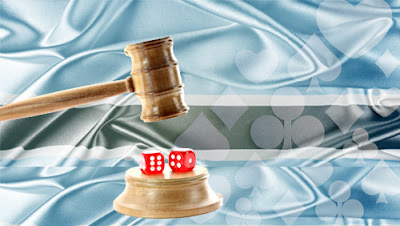Gambling Licensing & Regulations in Botswana
The gambling industry in the country has been legally defined and regulated for quite some time now. Dating as far back as 1966, Botswana legislators had already set up the Lotteries and Betting Act, as well as the Casino Act a few years later, in 1971.
Licensing used to be as vague a practice as the actual laws and regulations behind the establishments known as gambling shops. For a long time, operators provided services in the country without any licensing process. However, since the land-based gambling practices have been openly adopted, legislators needed to ensure some degree of legal compliance is prescribed as the industry standard.
Gambling is legal and regulated in Botswana. Before 2012 two laws regulated gambling in the nation: the Lotteries and Betting Act and the Casino Act. In accordance with the laws, license is required to operate gambling in Botswana. Previously, only land based casinos were regulated by the government, but the Gaming Act of 2012 brought sports betting, lotteries, bingo, poker, and even online and mobile gambling into the fold.
Online gambling is currently completely unregulated in the country, with no mentions of it in any laws. At the moment, internet penetration rate in Botswana is only 25%, but has been steadily increasing in the past years. With stricter land-based gambling regulation, more and more Botswana players might turn to online gambling instead in the future.
According to the Gambling Act, the legally acceptable age for gambling is 21 years but the regulations put it at 18. This point of concern is advanced by both Grand Palm and Avani. In terms of the Section 22 of the Regulations, a licensee who permanently removes from use or replaces approved chips or tokens at the licensee’s casino, 토토사이트 or who ceases to operate a casino shall prepare a plan for redeeming discontinued chips and tokens that remain outstanding at the time of the discontinuation. Lack of regulation: These are the countries where there are no rules regarding gambling. But, they do not fine any citizens for gambling either. This is a practice which can continue until laws are put in place.
That is to be done by way of publishing a notice for the discontinuance and redemption of the chips and tokens and the locations of the redemption in at least two newspapers circulating in Botswana at least twice during each week of the redemption period. The concern that Grand Palm raises is that the publication of adverts is too costly “and may possibly conflict with the Banking Act on currency adverts.” Section 29 of the latter Act says that “Any person who counterfeits, forges, or, without the permission of the Bank, photocopies or otherwise reproduces any note issued by the Bank shall be guilty of an offence and shall be liable to a fine of not less than P100 000 but not more than P1 000 000 and to imprisonment for a term of not less than seven years, but not more than 14 years.” The Regulations require transactions exceeding P25 000 to be reported. Avani points out that conversely, the Financial Intelligence Authority requires transactions of P10 000 to be reported and wants the GA to “clarify this incongruence.”




This blog are full of valuable information.
ReplyDeleteKeep up the good work. Continue posting this kind
of article.
카지노사이트
Https://yhn876.com 카지노사이트
"You are so entrancing! I figure I haven't actually examined anything indistinct at this point.
ReplyDeleteIt's remarkable to discover somebody who has an admitted thought on this point.
Genuinely, thank you for beginning this. 토토사이트
"